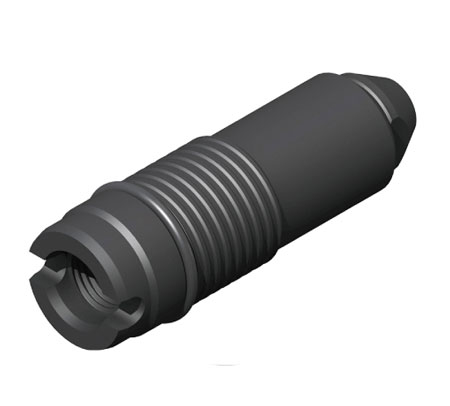May 8 industry news said: CNPC plans to import crude oil to supply Shandong refining for processing. Before that, Sinopec just promised a certain amount of processing capacity under the strong promotion of the national development and Reform Commission and the repeated requirements of Shandong Dilian.
According to a Shandong refiner, this time PetroChina will give part of its share of oil in Sudan to them for processing, from which Shandong refiner will get the cost of processing, while PetroChina will get the supply market of refined oil and other downstream products.
"Judging from the current situation, it is uncertain that the domestic oil market will be fully opened one day. However, the primary processing capacity of the refineries under the group is generally not high, which accounts for a small share of the refined oil market. Therefore, in addition to accelerating the expansion and transformation of the existing refineries, it is an inevitable strategy for the group to acquire the existing refining capacity and commission processing. " "Our goal is to have 160 million tons of refining capacity by 2010, accounting for 40% of the domestic market," a senior PetroChina official said
Substitute processing
This time, several oil refining enterprises, such as Shandong Jingbo and Shandong Dongming, obtained Sudan crude oil. According to the different scale of these enterprises, the amount of oil refining obtained is different, and some of them can obtain more than 100000 tons / month of crude oil.
The mode of cooperation this time is processing on behalf of others. That is to say, PetroChina gives a certain amount of crude oil to its partners at a certain price. After processing, PetroChina recovers all crude oil at a predetermined price. Shandong local refining gets the processing cost from it, while PetroChina gets the market of refined oil and other downstream products.
However, the refining and processing of Sudan crude oil in Shandong Province will face the risk of acid reducing cost and equipment corrosion.
"But this time the price is very attractive, only about 4600 yuan / ton, while the purchase price of PetroChina's refined oil is higher than that of Sinopec's 7000 yuan / ton." "We can get 100 yuan to 300 yuan / ton of net profit," said the Shandong refining official. In such a market, the opportunity is very rare. "
Before that, the price of crude oil provided by Sinopec was mostly around 5400 yuan / ton, and the price difference between SINOPEC and PetroChina was 700-800 yuan / ton, while the current CIF price of Russian fuel oil, the raw material used in Shandong refining, is 5600 yuan / ton.
Shandong is a province with concentrated refining industry in China. Due to the large number of refineries, Shandong's refining industry, which has obtained the amount of substitute processing, is limited. More small and medium-sized refining enterprises still rely on fuel oil to maintain production.
According to the above-mentioned CNPC executives, the product oil after buyback will be mainly put into the provinces of the Yangtze River Delta in the future. At present, PetroChina has a certain number of oil supply outlets in Jiangsu, Zhejiang and Shanghai through various modes such as acquisition, new construction and alliance, which will lay a foundation for PetroChina to better encroach on the market.
Previously, the oil sources of PetroChina gas stations in this area were mostly produced by refineries such as Dalian Petrochemical and Jinzhou petrochemical, and shipped to the Yangtze River Delta, bringing inconvenience to their market operation.
However, the above CNPC executives said that this mode is still a case operation.
PetroChina refining speed up
Around 2005, PetroChina began to carry out large-scale expansion and transformation of its refineries. Dalian Petrochemical Co., Ltd., Daqing Petrochemical Co., Ltd., Lanzhou Petrochemical Co., Ltd., Dushanzi Petrochemical Co., Ltd. and Fushun Petrochemical Co., Ltd. are the first refining and chemical enterprises to bear the brunt. This year alone, the investment in the expansion and transformation project of Dalian Petrochemical Co., Ltd. reached 10.7 billion yuan. PetroChina has also built new oil refining projects in Sichuan and Qinzhou.
After the May 1st movement, Shen Diancheng, vice president of PetroChina, announced that by 2010, PetroChina will build six 10 million ton oil refining bases, with an annual refining capacity of over 160 million tons, accounting for 40% of the total national capacity. It is planned to build 18 10 million ton oil refining bases by 2020, with an refining capacity of nearly 300 million tons / year, accounting for 45% of the total national capacity, including 150 million tons of sulfur-containing crude oil processing capacity.
However, experts in the industry pointed out that "the market with strong consumption of refined oil is mostly concentrated in the south of the Great Wall, which is the traditional territory of Sinopec. Even if PetroChina's new production capacity is put into production, it is difficult to compete with Sinopec in terms of resources in the Yangtze River Delta and Pearl River Delta. So in 2006, PetroChina spared no effort to compete with Sinopec for the construction right of Guangxi Qinzhou refinery, and actively sought cooperation with refineries in Japan, Taiwan and South Korea in order to shorten the distance between the refinery and the consumer market. "
On May 7, PetroChina and new Japan oil company (ENEOS) reached a cooperation agreement. PetroChina will be mainly responsible for the purchase of crude oil and the sale of refined products, while new Japan oil will be mainly responsible for the operation of Osaka refinery. The refining capacity of Osaka refinery will be 115000 barrels / day.
"Japan's refining capacity has been surplus, and it is close to China's Jiangsu, Zhejiang, Shanghai and other markets with strong consumption of refined oil products. The cooperation between the two sides can make up for the weakness of the group's refining capacity shortage in the shortest time." "We have been cooperating with many overseas companies for a long time by using overseas refining capacity to process and then shipping the refined oil back to China," said the top CNPC official
It is reported that Nippon petroleum company has started formal cooperation with CNPC as early as five years ago. Since 2004, Nippon has signed a contract with PetroChina for oil commissioned refining to export petroleum products to China, and the refining scale has increased from 20000 barrels / day at that time to 70000 barrels / day now.
According to CNPC's plan. In the future, no matter new production capacity, entrusted processing or overseas cooperation, PetroChina will adhere to the principles of proximity to oil sources, convenient transportation, etc., and any refining enterprises that do not meet these principles will develop to the downstream areas of petrochemical industry chain, such as fine chemical industry, instead of expanding the refining industry








 National Service Hotline
National Service Hotline